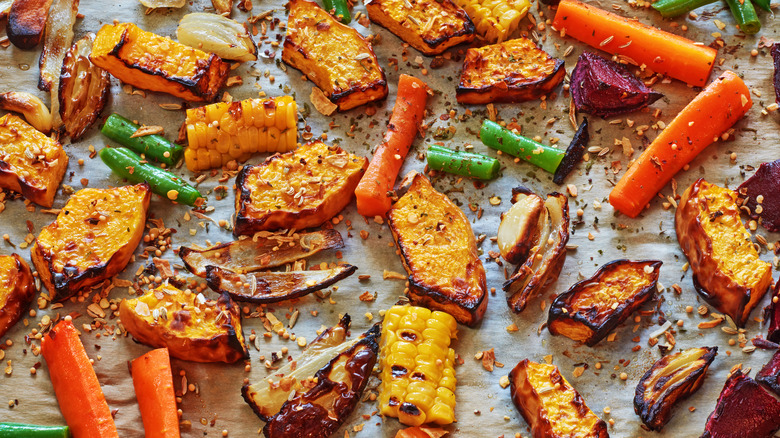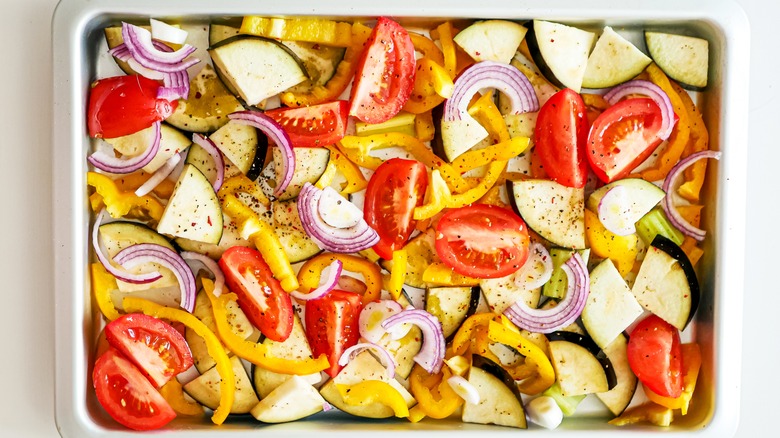Dry Roasting Will Transform The Taste Of Your Go-To Vegetables
Roasted vegetables bring tender, caramelized deliciousness to salads, sandwiches, side dishes, and more. What sandwich isn't improved by a slice of sweet, soft roasted red pepper? Who wouldn't love a wintry green salad topped with wedges of hearty roasted butternut squash? And who could turn down a buttery, burnished pizza finished with crispy-chewy roasted oyster mushrooms?
Thanks to the high heat used, which activates the Maillard reaction in a range of our favorite vegetables, roasted produce tastes sweet, earthy, and complex, taking items such as Brussels sprouts and broccoli from bland to show stopping in not much time at all. It's no wonder the method is a go-to for home cooks, many of whom have likely memorized the steps of preheating the oven, selecting a sheet pan, and choosing a high-heat oil with which to toss their favorite vegetables. If that sounds like you, you might be interested to know that the last step — the one of reaching for a bottle of oil — isn't necessary at all, in many cases.
Vegetables roasted sans oil can taste even more complex
Anyone who has roasted vegetables knows that it seems almost mandatory to coat the veggies in oil with a high smoke point, such as avocado, peanut, or coconut oil (via Well Seasoned). But according to California chef Nick Balla, ditching the oil and dry roasting vegetables can produce even more complex, nuanced flavors in some of our favorites. Balla told Food & Wine that he tosses naked veggies into a glass baking dish or cast iron skillet (to reduce sticking), cooking items such as sweet potatoes, mushrooms, and string beans at 350 degrees Fahrenheit until they're tender and naturally release from the pan.
Since the produce's innate flavor isn't masked by oil, Balla notes, it comes through in droves, allowing the eater to taste every element of earthiness and sweetness. "Summer squash gets this incredible tropical aroma, like really ripe mango or papaya but more vegetal," he said.
Once cooked, dry roasted veg can be tossed with plenty of fat such as butter, olive oil, or aioli; the vegetables will drink up the flavorful fat and taste even more incredible. Or they can be left dry and worked into other dishes: Think dips, spreads, and soup bases, or even pie fillings in the case of pumpkin and squash. Minimalist Baker also suggests incorporating the dry-roasted veggies into breakfast scrambles and grain bowls. Tasty vegetables with a lot less oven splatter and cleanup? Color us intrigued.

